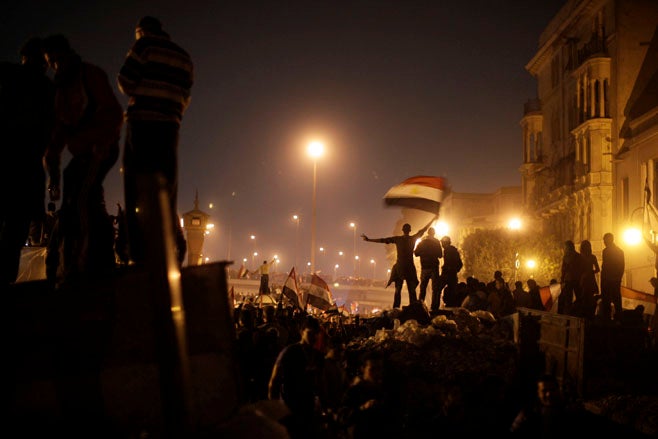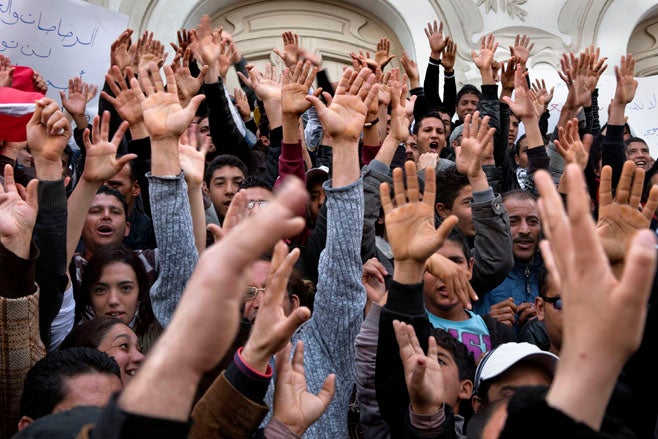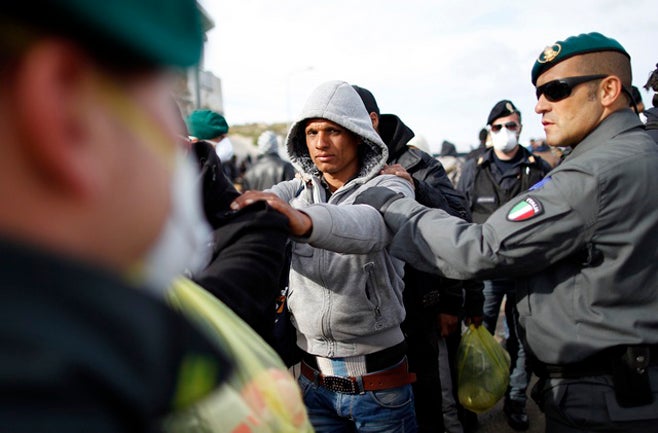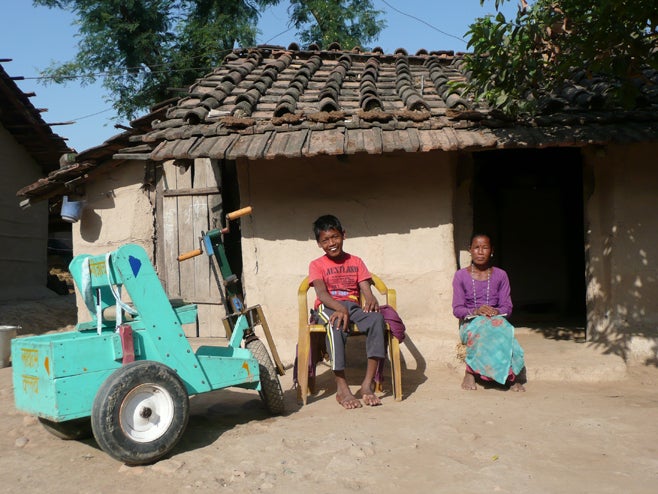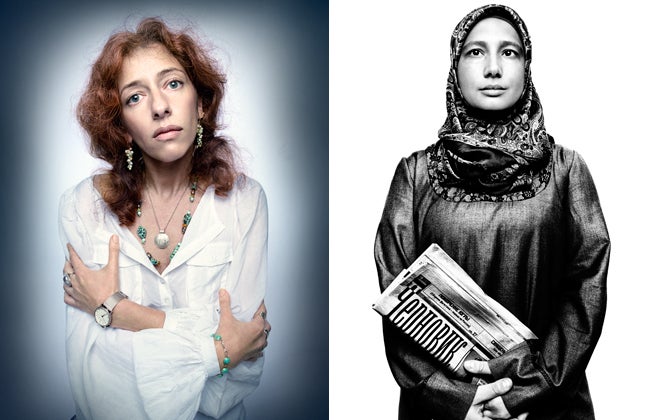Despite government promises of reform and relaxation of controls in some areas, human rights in Malaysia remain tightly constrained.
On September 15, 2011, Prime Minister Seri Najib Tun Razak announced the government’s intention to repeal the Internal Security Act (ISA), revoke three emergency proclamations that underpin many of Malaysia’s most repressive laws, and review the Restricted Residence Act. In the same speech, however, he committed to introducing two new laws under article 149 (“Special Laws against Subversion”) of the Federal Constitution, which allows parliament to enact sweeping security provisions that deny basic freedoms.
On July 9, police in Kuala Lumpur, the capital, broke up a peaceful rally organized by Bersih 2.0, the Coalition for Clean and Fair Elections, arresting nearly 1,700 demonstrators demanding electoral reforms. Police fired teargas at close range at protesters in an underground tunnel, injuring several, and into the Tung Shin and Chinese Maternity hospital courtyard.
Detention without Charge or Trial
The ISA permits indefinite detention without charge or trial of any person that officials deem a threat to national security or public order. While use of the ISA has declined over the years, government figures released in connection with Najib’s speech said 37 people were in ISA detention. The government continues to detain thousands under the Emergency (Public Order and Crime Prevention) Ordinance (EO) and the Dangerous Drugs (Special Preventive Measures) Act. However, in October parliament repealed the Restricted Residence Act and 125 people previously confined under the act were released.
The United Nations Working Group on Arbitrary Detention singled out the EO for criticism in its February 2011 report, noting the law permits indefinite detention “without the need to sustain evidence or probe penal responsibility.”
Malaysian authorities arbitrarily applied the ISA in October 2010 against immigration officers allegedly involved in human trafficking despite the availability of Malaysia’s Anti-Trafficking in Persons Act, but abruptly released all but one of the accused in August 2011. The last detainee was released on November 10. On July 2, police used the EO to detain six leaders of the Parti Sosialis Malaysia (PSM) on the bogus charge that they were responsible for planning the Bersih rally and, until their July 29 release, subjected them to lengthy interrogations, isolation, and blindfolding.
Freedom of Expression, Assembly, and Association
Rights of expression, peaceful public assembly, and association —guaranteed in Malaysia’s Constitution—continued to be violated in 2011. On May 21 Bersih announced a July 9 “Walk for Democracy” to call for reform of the electoral system. In mid-June the police announced that no police permit, required by section 27 of the Police Act, would be issued for the march. Inspector-General of Police Tan Sri Ismail Omar threatened that “stern action” would be taken against anyone involved in an “illegal rally.”
Throughout June police mounted repeated shows of force, arresting activists distributing leaflets, wearing yellow Bersih shirts, or coordinating gatherings to promote the rally. On June 29 a plainclothes police unit without a warrant raided Bersih’s secretariat, confiscating Bersih materials and detaining some of those present for questioning; on July 1 the Home Ministry declared Bersih an illegal organization under the Societies Act. On the day before the march police obtained a court order prohibiting 91 rally leaders from entering downtown Kuala Lumpur. Although the thousands who eluded police blockades were peaceful and well-disciplined, but police broke up the rally using baton charges, chemically infused water cannons, and teargas barrages. Nearly 1,700 people were arrested. Journalists and ordinary citizens released photographs and video documenting much of the abuse.
On June 25, police stopped a bus carrying PSM activists to a planned rally, detaining 30 on suspicion of “preparing to wage war against the king.” They were released from pre-trial detention on July 2, but police immediately re-detained six of their leaders under the EO. All 30 were charged under the Societies Act and a section of the ISA outlawing possession of subversive documents. On September 19 the attorney general released them and on October 10, a court affirmed the release as a “discharge not amounting to an acquittal,” which makes them subject to future prosecution. On October 28, six PSM leaders were granted the same discharge
Media Censorship
With nearly all mainstream newspapers and television and radio stations controlled by media companies close to political parties in the government coalition, social media usage has expanded rapidly, joining popular online news portals as alternative sources for news and information. The internet remains uncensored but the Home Ministry in 2011 again refused the Malaysiakini website’s application to publish a daily print version, saying that a publishing permit is “a privilege,” not a right. Malaysiakini has challenged the Home Ministry’s decision; at this writing the High Court was set to review the challenge on December 8, 2011. Online news portals critical of the government also came under repeated cyber-attacks by unknown assailants at key news junctures, such as the Sarawak elections in April and the Bersih rally in July.
In his September speech, Prime Minister Najib promised to amend the Printing Presses and Publications Act but only to end the mandatory annual licensing requirement. The minister of home affairs would retain broad authority, without judicial review, to refuse permission to publish anything he determines “likely to be prejudicial to public order, morality, security … or national interest.”
On July 14 the High Court in Kuala Lumpur upheld the ban on seven books by Malaysiakini cartoonist Zunar and threatened revocation of printers’ licenses if they produced his books.
In September the Malaysian Communications and Multimedia Commission ordered broadcasters not to show a non-partisan voter education public service announcement created by well-known film producer and musician Peter Teo.
Trial of Anwar Ibrahim
The trial of Anwar Ibrahim, parliamentary leader of Malaysia’s political opposition, has raised serious human rights concerns. Anwar is charged with “sodomy” for allegedly engaging in consensual homosexual conduct on June 26, 2008.
Court rulings have denied Anwar’s legal team access to the prosecution’s witness list, critical forensic samples needed for independent examination, and medical examiners’ notes from hospital examinations of the accuser, in violation of international fair trial standards.
In a September 23, 2011, affidavit to the court, Prime Minister Najib affirmed he had met Saiful, the accuser, two days before the alleged incident of sodomy.
Migrant Workers, Refugees, Asylum Seekers, and Trafficking Victims
The Malaysian Immigration Act 1959/1963 fails to differentiate between refugees, asylum seekers, trafficking victims, and undocumented migrants. The government is not a party to the 1951 Refugee Convention and lacks domestic refugee law and asylum procedures.
On July 25 Australia and Malaysia signed a “refugee swap” deal that would have permitted Australia to send 800 asylum seekers to Malaysia for refugee screening in exchange for receiving 4,000 refugees registered by the Office of the UN High Commissioner for Refugees. On August 31 the Australia High Court struck down the agreement after determining that it did not legally bind Malaysia to protect the rights of transferred asylum seekers.
Malaysia has made little progress in ensuring respect for human rights in its anti-human trafficking efforts. The Anti-Trafficking in Persons Act conflates the crimes of trafficking and smuggling, thereby reducing protections for both groups of victims, and making it less likely that trafficking victims will cooperate in identifying and prosecuting perpetrators.
A 2011 program to register all migrant workers lacked transparency regarding which migrant workers will be permitted to remain in Malaysia.
Some 300,000 migrant domestic workers are excluded from key protections under Malaysia's Employment Act, including limits on working hours, a mandatory day off per week, annual and sick leave, maternity protections, and fair termination of contracts. NGOs and embassies of labor-sending countries handle hundreds of complaints involving unpaid wages, physical and sexual abuse, and forced confinement. Indonesia and Malaysia signed a Memorandum of Understanding that guarantees a weekly day off and allows domestic workers to keep their passports rather than surrendering them to employers. However, the agreement perpetuates recruitment fee structures that leave workers deeply indebted. Malaysia is one of only nine states that did not vote for International Labour Organization Convention No. 189 on Decent Work for Domestic Workers.
Drug Policy
The National Anti-Drugs Agency maintains over 20 Puspens (drug retention centers) where detainees are held a minimum of two years. Although rates of relapse to drug use have been estimated in Malaysia at 70 to 90 percent, people who are re-arrested as users face long prison terms and caning.
Sexual Orientation and Gender Identity
The government refuses to consider repeal of article 377B of the penal code, which criminalizes consensual “carnal intercourse against the order of nature,” or to replace article 377C on non-consensual sexual acts with a modern, gender-neutral law on rape.
In July the high court refused to permit Aleesha Farhnan Abdul Aziz, a transgender individual, to change her registered name and gender from male to female. In April Malaysian authorities sent 66 allegedly effeminate schoolboys to camp “to guide them back to the right path.”
On November 3 police banned Seksualiti Merdeka, a festival held annually since 2008 to celebrate the rights of people of diverse sexual orientations and gender identities, as a threat to public order.
Freedom of Religion
Malaysia’s constitution affirms the country is a secular state that protects religious freedom for all, but treatment of religious minorities continues to raise concerns. On August 3, 2011, Selangor state religious authorities raided a Methodist church where an annual charity dinner was being held. The authorities alleged that there had been unlawful proselytization of the Muslims present at the event but presented no evidence to support their allegations.
Nazri Aziz, de facto law minister, said that since Islam allows underage marriage, the government “can’t legislate against it.”
Key International Actors
The United States continues to exercise significant influence in Malaysia through expanding links in trade and investment, military-to-military ties, and cooperation in regional security. When Deputy Prime Minister Tan Sri Muhyiddin Yassim visited Washington in January 2011, US Secretary of State Hillary Clinton emphasized the “positive track” of the growing bilateral relationship and suggested the possibility of a US presidential visit. She also urged a fair trial for Anwar Ibrahim.
Malaysia continued to have close ties with China and agreed to a request by Beijing in August to summarily return to China a group of ethnic Uighurs in Malaysia despite the likelihood that they would face torture and ill-treatment. Eleven were sent back while five remain in Malaysia.
Malaysia continued to lead efforts to stymie the efforts of the Association of Southeast Asian Nations Committee on Migrant Workers to negotiate a legally binding instrument for the protection and promotion of the rights of migrant workers.
